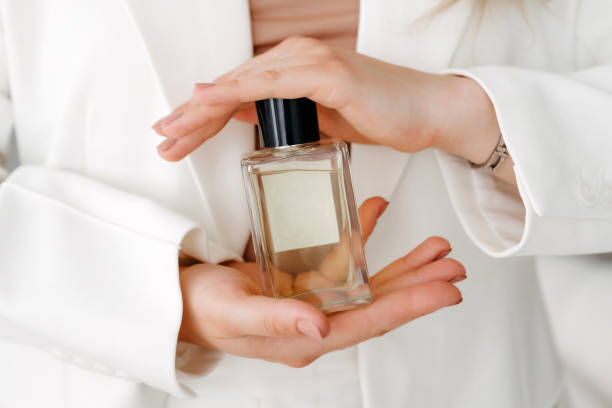Launching a perfume business in Nigeria offers a promising opportunity for this line of business.
Today, we will show you a few guides on how to start and run an effective Perfume Business in Nigeria.
Our comprehensive guide is designed to walk you through the essential steps of starting a perfume business in Nigeria. From conducting market research, understanding legal requirements, and sourcing reliable suppliers to crafting effective branding and marketing strategies, we’ve got you covered. Additionally, we’ll delve into crucial financial considerations to ensure your venture’s success.
Guide on How to Start a Perfume Business in Nigeria
Here are some steps you can follow to Embark on a Lucrative Perfume Business in Nigeria:
Step 1: In-Depth Market Research
Kickstart your journey by conducting thorough market research. Understand your target audience, analyze the competition, and stay updated on market trends. Dive into Nigerian consumers’ preferences and buying habits to tailor your product range and marketing strategies accordingly.
Step 2: Craft a Solid Business Plan
Create a robust business plan outlining your goals, target market, pricing strategy, product range, branding, and marketing strategies. Include financial projections and a detailed budget covering startup costs, manufacturing, packaging, marketing, and distribution to guide your business to success.
Step 3: Navigate Legal Requirements
Ensure compliance by registering your business with the Corporate Affairs Commission (CAC) in Nigeria. Obtain essential licenses and permits, including product registration with the National Agency for Food and Drug Administration and Control (NAFDAC). Adhere to labeling and packaging regulations to operate seamlessly.
Step 4: Secure Quality Product Sources
Source top-notch perfume ingredients and packaging materials from reputable suppliers. Explore both local and international options to meet your quality standards. Consider importing essential oils, fragrance compounds, and bottles while ensuring strict adherence to safety and quality standards.
Step 5: Establish a Striking Brand Image
Develop a compelling brand identity that resonates with your target market. Create an eye-catching logo, packaging, and labeling that encapsulate your brand essence. Invest in visually appealing bottles, boxes, and labels to position your product as premium and desirable.
Step 6: Ensure Quality Manufacturing
Partner with a reliable manufacturing facility or set up your production unit. Enforce stringent quality control measures to maintain consistent product quality. Comply with industry standards and regulations to uphold customer satisfaction and trust.
Step 7: Optimize Distribution Channels
Identify distribution channels aligned with your target market, whether retail stores, online platforms, or direct sales. Forge partnerships with wholesalers, retailers, and online marketplaces to broaden your customer base. Consider launching your e-commerce platform for direct consumer sales.
Step 8: Execute a Robust Marketing Strategy
Implement a multi-channel marketing strategy to boost awareness and drive sales. Leverage social media, influencer marketing, content marketing, and traditional advertising to reach your target audience. Create excitement through sample products and fragrance events, fostering word-of-mouth referrals.
Step 9: Prioritize Customer Service and Feedback
Build a loyal customer base with exceptional customer service. Collect and utilize customer feedback to enhance your products and services. Offer personalized recommendations and maintain open communication channels to ensure heightened customer satisfaction.
Where to Sell Perfumes and Fragrances in Nigeria
Selling perfumes and fragrances in Nigeria can be done through various channels, both traditional and online. Here are some places where you can consider selling perfumes in Nigeria:
- Retail Stores: Approach local retail stores, especially those specializing in beauty and cosmetics. Establishing partnerships with established retailers allows you to showcase your products to a wider audience.
- Shopping Malls: Consider setting up a kiosk or renting a retail space in popular shopping malls. Malls attract a diverse customer base and can provide a high level of visibility for your perfume business.
- Online Marketplaces: Utilize online platforms to reach a broader audience. Platforms such as Jumia, Konga, and other e-commerce websites in Nigeria allow you to list and sell your products online.
- Social Media: Leverage social media platforms like Instagram, Facebook, and Twitter to market and sell your perfumes directly to consumers. Create engaging content, run promotions, and interact with potential customers.
- Beauty Salons and Spas: Establish partnerships with beauty salons and spas. They often sell beauty products, and having your perfumes available in these establishments can attract customers interested in luxury or niche fragrances.
- Pharmacies and Drugstores: Approach local pharmacies and drugstores to stock your perfumes. Many consumers purchase beauty and personal care products from these convenient locations.
- Perfume Specialty Shops: Consider opening a dedicated perfume store, focusing exclusively on fragrances. This allows you to create a niche market for your products.
- Direct Sales and Networking: Engage in direct sales by organizing perfume parties or hosting events. This approach allows you to build personal connections with customers and showcase your products directly.
- Hotel Gift Shops: Partner with hotels to supply your perfumes to their gift shops. Tourists and business travelers often look for unique souvenirs, and hotels can be an excellent channel for exposure.
- Corporate Gifts: Explore the corporate gifting market by offering your perfumes as corporate gifts. Businesses often purchase premium items for employee rewards or client appreciation.
Conclusion: Thriving in Nigeria’s Perfume Market
Embarking on a perfume business journey in Nigeria demands meticulous planning and attention to detail. By diligently following these steps, you can establish a thriving perfume business in Nigeria. Prioritize product quality, compelling branding, and innovative marketing strategies to stand out in the competitive market.
With dedication, creativity, and a customer-centric approach, your perfume business can flourish in Nigeria’s burgeoning luxury and personal grooming market.”
FAQs
Why should I consider starting a perfume business in Nigeria?
Starting a perfume business in Nigeria presents a lucrative opportunity due to the country’s growing consumer market and increased interest in personal grooming and luxury products. This guide provides comprehensive insights and steps to help you tap into this thriving market successfully.
2. How can market research benefit my perfume business? Conducting thorough market research is crucial to identify your target audience, understand competition, and stay abreast of market trends. This knowledge will guide product development and enable effective marketing strategies tailored to Nigerian consumers’ preferences and buying habits.
3. What legal requirements do I need to fulfill to operate a perfume business in Nigeria? To operate legally, you must register your business with the Corporate Affairs Commission (CAC) and obtain necessary licenses. Compliance with product registration through the National Agency for Food and Drug Administration and Control (NAFDAC) is essential. Adhering to labeling and packaging regulations is also crucial.
4. How can I ensure the quality of my perfume products? Securing high-quality perfume ingredients and packaging materials from reputable suppliers, implementing strict quality control measures in manufacturing, and adhering to safety and quality standards are key. This ensures consistency in product quality and builds trust among consumers.
5. What marketing strategies are effective for a perfume business in Nigeria? Implement a multi-channel marketing strategy, including social media, influencer marketing, content marketing, and traditional advertising, to create awareness and drive sales. Consider offering sample products, organizing fragrance events, and building relationships with wholesalers, retailers, and online platforms for broader reach.





